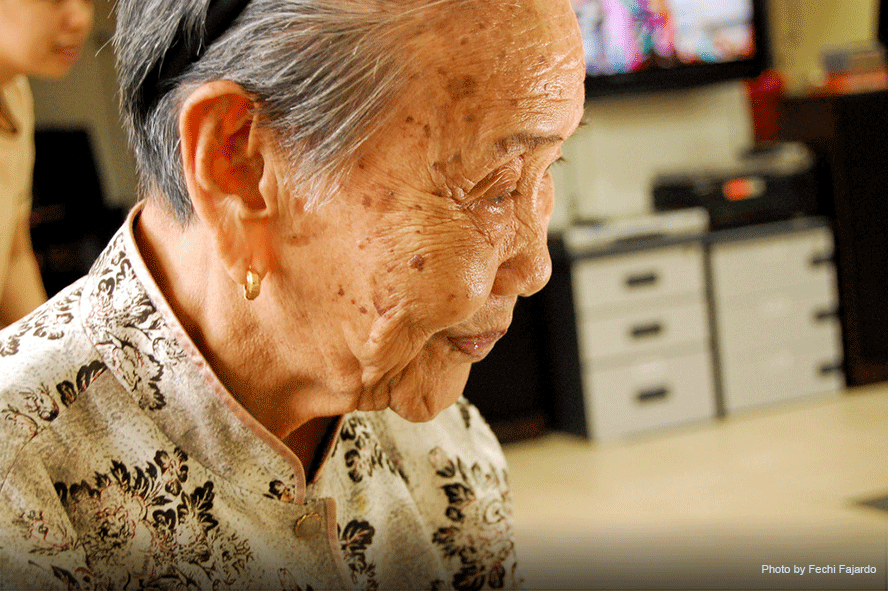
Singapore faces the sobering reality of a rapidly ageing population, a challenge that the Singapore government has spared no expense in tackling.
In 2016, the Singapore government unveiled a $3 billion Action Plan for Successful Ageing, promising a slew of elderly-friendly policies and initiatives including, notably, the raising of the re-employment age from 65 to 67, building 40 day centres for the elderly by 2020, and setting up a National Silver Academy where elders can continue to learn and develop themselves.
It is clear that growing old is costly business the elderly require specialised infrastructure and programmes to age comfortably and with purpose but it is just as crucial for them to feel relevant and included as part of Singapore society, even as they grow older.
A 2014 Institute of Policy Studies report by' Mathew Mathews and Terence Leong found that intergenerational bonding was instrumental in achieving this. The study's authors wrote: As mentioned in the literature, and substantiated by the primary research, social connectedness is a strong motivator and an outcome of participating in lifelong learning endeavours.
Among the IPS report's recommendations were having the population learn about ageing from a younger age so as to better prepare them for it. For example, people could be encouraged to adopt healthier lifestyle habits earlier on, so these good habits would persist into old age.
The IPS report referenced a separate study commissioned by Singapore's Council for the 3rd Age (C3A) which found, in particular, that programmes with a focus on intergenerational bonding were a practical and effective means of doing this. The study, which evaluated the effects of the C3A's Intergenerational Learning Programmes (ILPs) on its participants, found that at least 92 percent of participants agreed that the programmes helped to improve their communication and bonds with younger family members.
Further, participants provided feedback on the programme which indicated that it had been a useful platform for seniors to share valuable life experiences, knowledge and skills with their young counterparts on an informal basis.
Elderly participants in ILPs get to learn skills such as how to use platforms like Skype and Facebook, photography and public speaking, among others. During these sessions, students from primary and secondary schools, polytechnics and the Institute of Technical Education play the role of teachers, guiding the elderly through a series of hands-on activities.
Singapore's Infocomm Development Authority (IDA), also recognising the importance of intergenerational cohesion, similarly launched a series of intergenerational IT boot camps as part of its Silver Infocomm Initiative. During each boot camp, young digital natives were paired with baby boomers with limited IT skills.
In an interview with CNBC, Dr Janil Puthucheary, Minister of State for Communication and Information and the Ministry of Education, said that certain things that were cutting-edge had become normal even essential in a very short time, and that digital inclusion means ensuring that everyone has access to online information, entertainment and services.
The boot camps, the IDA added, had the additional benefit of promoting communication and family relationships.
In an interview with The Straits Times, Associate Professor Reshma Merchant, who heads the general medicine division at National University Hospital, acknowledged that Singapore faced the challenge of a widening generational gap which could result in diminished empathy towards the elderly in the long term.
She welcomed the idea of co-locating eldercare and childcare facilities in new Housing Board developments, a move she said would maximise opportunities for intergenerational bonding.
Most elderly people feel much more valued when surrounded by young kids and, in return, the young ones will learn about culture and tradition, she added.
Such initiatives are particularly crucial in the wider context of shifting family norms. Another 2014 IPS report by Mathew Mathews and Paulin Tay-Straughan, based on a survey of 2000 seniors commissioned by C3A, found that seniors in Singapore particularly those who were financially sound and healthy generally had their social needs well met, with adequate social support. However, much of these social needs were provided for by family, with most of these seniors indicating limited community participation.
The study's authors wrote: While family ties at this stage are very strong, it is not clear whether shifting family norms will result in the weakening of family-based ties in years to come.
In light of this, it will be even more important for seniors to build meaningful connections through community-based activities. Further, as more singles and childless couples age, care must be taken to ensure that there is adequate support for those who grow old without community support older adults must be able to rely on one another so they can live independent and fulfilling lives.
This piece was written by Liew Hanqing.